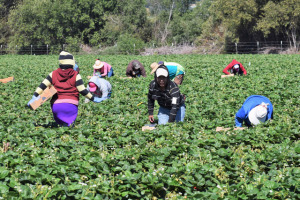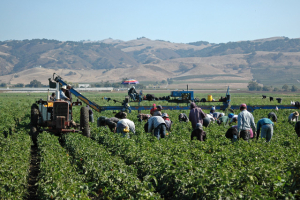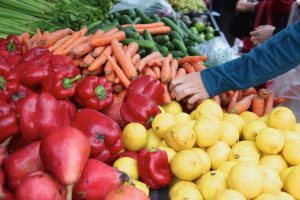
Time Will Tell, But Real Change May be Possible
July 9, 2020 Roots of ChangeReflections on the Moment:
The Black Lives Matter movement fills my mind. It is framed by COVID-19 and the rants of a racist President who seems committed to destroying the nation’s cohesion. Ironically, this may cure the dis-ease that has plagued the national soul for centuries. Perhaps delusions are being revealed and rejected in favor of truth and reconciliation, which would set us up to begin reparations. Maybe this President, the epidemic and their economic destruction and this latest national uprising over racist murders of blacks by whites is what will finally force us to look in the mirror and transform our culture and alter our trajectory. I fervently hope so. I see three indicators that provide me a modicum of hope for change.
First, the epidemic has forced a slowdown and quietness among large portions of the populace that has allowed minds to ponder the many challenges. I see more self-reflection, critical thinking and a search for a path forward. Most poignant for me is the openness and action I am seeing on several nonprofit boards on which I serve.
Second, I see leadership within the food system and mainstream agriculture asking questions and digging into the challenges with more honesty and humility than ever before. Associations, organizations and individual growers I know are seeking to alter the primary goal of the food system from merely a profit-making industry to a problem-solving force that can justify its existence by restoring health to people and the underlying ecological system upon which food production depends rather than simply mass delivery of cheap food. Climate chaos and COVID are the drivers of this change. They highlight the vulnerability and the unacceptability of working conditions for millions. Worker health is now front and center and the tragic impacts on those who work the fields, meat and other industrial processing and packing plant make it impossible to hide the need for radical change. I may be optimistic about the prospect for meaningful change, but I am not naive.
Only time will tell if groups like the US Farmers and Ranchers Alliance, featured in today’s podcast, succeed in turning farmers and food companies into climate heroes. Only time will tell if the 27 industrial factories that supply 97% of the nation’s meat can be unraveled and distributed across the land. It is hard to imagine such a shift, but ROC is doing what we it can in concert with Professor Tom Tomich, and the new UC Davis Food Systems Lab team, to provide a vision of what a California meat system might look like if it were distributed across the land, owned and operated by community members, running smaller plants, with more employees working with more space on fewer animals per day that were raised and finished on pasture. Such a system could end the reliance on massive feedlots, slaughter and packing facilities with their multitude of negative impacts on animals, people and the ecosystem. Yes, it may sound like a dream, but it is worth pursuing in order to end the harm to people, animals and the planet.
Finally, I am moved and inspired by the large numbers of young people in the street who are part of the Black Lives Matter and climate crisis uprisings. In my part of the country, black and particularly Latinx, youth are organizing and leading marches. My hope is that these young leaders will inspire unprecedented participation in the next election. The apparent and growing desire for racial justice, effective response to COVID, climate chaos, and the linked economic hardships may be the engines needed to inspire a mass movement toward transformation of the body politic. Time will tell, but my fingers are crossed.
Update on ROC Policy & Organizing Work
The COVID pandemic and related budget deficit has forced the California Legislature to greatly reduce its deliberative time and the number of bills it will consider. As a consequence, ROC’s primary policy agenda items related to climate smart agriculture, the California Green New Deal, a statewide sugary beverage tax and relief for small poultry producers have been altered or delayed. Our lead actor in Sacramento is our former policy director, Justin Rausa, who is now with Everyday Impact Consulting. He covers all issues for us except sugary beverages. On that tax issue, our longtime lobbyist Kathleen Mossberg of MVM Strategy Group leads the way. Together, they keep ROC’s voice in the Capitol dialogues and debates related to all agenda items that are in motion. The one place we see real potential progress may be improving school meals, a priority of California’s First Partner, Jennifer Siebel Newsom. Allies, particularly at NRDC, have been leading the work in this area, which we support.
My personal policy focus has been on two items. I am actively involved in a healthy soils coalition that has been engaging the Newsom Administration and leaders in the Legislature to keep them focused on the need for more investment in key programs. I am also working with another coalition to motivate cities and counties to pass resolutions that ask the Legislature to reverse its 2018 decision to ban local taxes on sugary beverages. Given the pandemic’s fiscal and food chain impacts, we feel that local governments need access to such a tax to relieve the burdens emerging across the state. Our coalition is engaging dozens of jurisdictions with progress. In the August Pulse, I will share a list of cities and organizations that have embraced the resolution.
ROC Now Offers Consulting Services
In addition to our social media communications and the Flipping the Table podcast, ROC has begun to greatly expand our consulting practice. As mentioned above, UC Davis Professor, Dr. Tom Tomich, has engaged ROC to work with his team from the UC Davis Food Systems Lab, to develop white papers and other materials that make cases for climate smart agriculture and regionally-based, humane and healthy meat processing as well as produce supply chains that are resilient in the face of pandemics and climate related disruptions that are sure to accelerate in the years ahead.
ROC has also joined the Wholesome Wave team, pioneers with ROC in the promotion of nutrition incentives and veggie prescriptions, to scale use of the new Tangelo app that allows CalFresh recipients to have healthy food delivered to their homes. The app applies nutrition incentive funding to the user’s purchases, allowing families to afford more fresh fruits and vegetables. The app also provides access to many health and nutrition support services and information. Much more on this in August.
Finally, ROC has joined forces with Rodger Wasson of the popular Farm to Table Talk podcast. Together, we are hosting and producing a series of ten podcasts for the Larta Institute that will explore the work of food and ag tech innovators through frank and honest conversations. This series will lead up to the Institute’s annual Ag Innovation Showcase event. This year, due to COVID, it will occur August 27-28 via webinar. Watch our social media for those special episodes.
(Photo credit: Bruce Emmerling/Pixabay)



